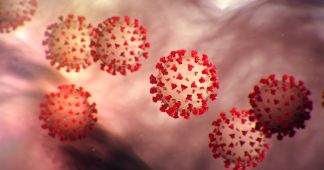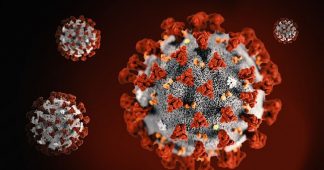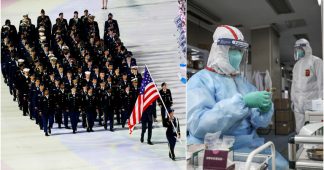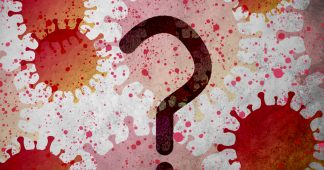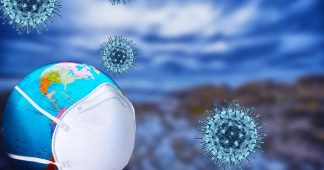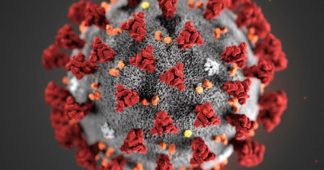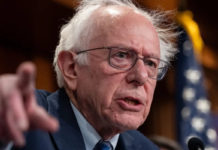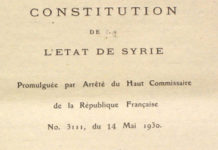By Ron Unz
April 4, 2022
With attention so heavily focused on the Russia-Ukraine war, the second anniversary of the outbreak of the Covid epidemic in the West passed without much public notice.
The geopolitical consequences of the global rupture between America’s NATO alliance and Russia may be enormous, perhaps heralding the end of the U.S. dollar as the world’s reserve currency. But most of this still lies in the realm of mere possibility, while for two years Covid has already disrupted the daily lives of many billions around the world and reshaped economies. Total casualties in the Ukraine conflict are probably still in the low tens of thousands, but according to the Economist, excess deaths worldwide due to Covid may have already reached twenty million, with the U.S. share of that total possibly exceeding 1.3 million. If well over a million Americans have died either directly or indirectly from Covid, determining whether the cause was natural or man-made remains an important question to answer.
During the first year of the epidemic, a belief had taken hold that the virus was natural and this gradually hardened into establishment orthodoxy, with any public skeptics dismissed as “conspiracy theorists.” But then last May, Nicholas Wade, the former science editor of the New York Times, self-published a long article puncturing that propaganda-bubble by mustering the strong evidence that the virus was artificial, probably released by a lab-leak at the Wuhan Institute of Virology. Numerous influential journalists soon seconded his analysis, and by the end of that same month, Facebook had officially reversed its censorship policy and permitted such theories to be freely discussed, thereby changing what two billion people around the world were allowed to read and write.
Although no such dramatic breakthroughs have occurred during the last few months, I do think there have been some developments that have shifted our understanding of the virus and its likely origins.
In late February, the New York Times gave front-page coverage to a couple of new preprints by top researchers that reanalyzed the early infection data from Wuhan. These papers identified the Huanan wildlife market as the original geographical locus of the disease, with no concentration of early cases in the vicinity of the Wuhan lab, located eight miles away on the other side of the Yangtze river. Many of the animals sold in that market were those suspected of being the original source of the virus, so the Times coverage seemed to affirm a natural origin rather than a lab-leak.
The Economist soon rendered a similar verdict, suggesting that the new scientific analysis “robustly” made the case that the virus had spread from a wildlife market rather than a lab, and many other media outlets took this same position.
Wade, however, stood his ground, soon publishing a short rejoinder in City Journal. He noted that although the market certainly represented the December epicenter of the Wuhan outbreak, it may have merely functioned as an amplifier, with its heavy daily foot-traffic creating a super-spreader event after the virus had arrived there from elsewhere in Wuhan.
His piece was entitled “Journalists, or PR Agents?”, and he focused as much on media criticism as on the virus issue itself, chiding the Economist for its credulity and the once-influential New Republic for its exaggerated declaration that “The lab leak theory is dead.” He rightly emphasized the considerable reluctance of most working scientists and journalists to take public positions at sharp variance with official orthodoxy.
Wade was not alone in standing by the lab-leak hypothesis. Last year Katherine Eban of Vanity Fair had published a very lengthy and detailed article in which she heavily drew upon Trump Administration sources to argue that the virus had been a product of China’s Wuhan lab, and she now returned with a 10,000 word article maintaining this position. Although the bulk of her new piece focused upon the background of the non-profit EcoHealth Alliance of Peter Dazsek, the organization that had served as a conduit of American funding for the Wuhan lab, she also criticized those claiming that the new research studies proved that the virus was natural.
After citing researchers who disputed the conclusions of the new papers, she noted that a study released almost simultaneously by China’s own CDC had actually provided some contrary evidence. All 457 swab samples collected from 18 different species of animals in the market had been negative for the virus, while all of the 73 positive tests were linked to human infections, results fully consistent with the possibility that the market had merely functioned as amplifying super-spreader. Indeed, although the Chinese government has officially favored a natural source, two years of its extensive efforts had failed to uncover any such animal carrier.
My own evaluation of these new scientific papers takes a middle-ground position. While the heavy concentration of early cases around the market and their absence around the lab hardly proves that the former was the original source of the outbreak, I do think it shifts the presumption substantially in that direction. If the virus had spread from an accidental lab-leak, we would naturally expect to see some pattern of early cases in that vicinity rather than on the other side of the large metropolis.
However, I believe that some much more important elements of these new research papers have gone almost entirely unnoticed in the media outlets covering the story, probably because the implications fell outside the “Overton Window” of acceptability and would inevitably provoke “Crimethink”.
In the second paragraph of his recent column, Wade accurately described the current framework of media discussion:
“Two hypotheses have long been on the table. One is that the virus jumped naturally from some animal host, as many epidemics have done in the past. The other is that it escaped from a lab in Wuhan, where researchers are known to have been genetically manipulating bat viruses in order to predict future epidemics.”
However, for two years I have been advocating a third, entirely different hypothesis. I have argued that there is strong perhaps even overwhelming evidence that the outbreak was the result of an American biowarfare attack against China (and Iran), probably orchestrated by rogue elements of the Trump Administration.
Under this reconstruction, more than a million Americans have now died from the unintended lethal blowback of our eighty-year-old biowarfare program, a program that has received over $100 billion in U.S. government funding. Surely such a scenario deserves enormous public attention if there exists even the slightest possibility that it might be correct.
And the new research studies heavily promoted by our elite media have considerably strengthened this case. According to their analysis, the Covid outbreak in Wuhan began somewhat later than had previously been assumed, with Patient Zero probably becoming infected in late November or early December, roughly a month later than the previous consensus date.
Under normal circumstances, this shift of a few weeks in timing would be completely unimportant, but the implications become explosive when juxtaposed with another known date that I have repeatedly emphasized in my articles. In April 2020 ABC News reported and Israeli TV soon confirmed that a secret Defense Intelligence Agency report prepared in “the second week of November” had described a “potentially cataclysmic” disease outbreak in Wuhan. Therefore, this DIA report accurately described the Wuhan outbreak weeks before the first resident of China had even become infected, a striking anomaly obviously warranting very serious further investigation.
Until recently, I had confined my Covid analysis to a long series of articles, also collected together in a freely downloadable eBook. But beginning in February I did several video interviews in which I laid out my case, and these proved much more popular than I had expected. Despite the overwhelming focus of attention on the Russia-Ukraine war, during the last two months these videos have been viewed almost 300,000 times, and I find it difficult to believe that the important information they present has not come to the attention of a diligent investigative journalist such as Eban nor her two research assistants as they worked together preparing a long article on such closely-related matters. But if she is unaware, perhaps someone should inform her on Twitter.
Or consider another point I have emphasized in my series of articles and my video interviews. By February 2020, the headlines of the New York Times declared that Iran had become the world’s second epicenter of the Covid outbreak, with its political elites suffering very heavily. However, neither the Times nor almost any other Western media outlet ever reported that Iran’s government and media publicly accused America of having unleashed Covid as a biowarfare attack against their country and China, with Iran’s former president even filing an official complaint with the United Nations. Only our government-funded international propaganda outlet Radio Free Europe/Radio Liberty took notice of those extremely serious Iranian allegations and dismissed them as absurd on the grounds that the Covid virus was known to be natural. But if Eban believes that the virus came from a lab, surely those original Iranian accusations would warrant a mention somewhere in her two articles, which total over 22,000 words and run some 65 pages.
Although the obvious facts regarding Covid’s origins that I have presented for the last two years in my articles and interviews have been totally ignored by our Western media, they may be widely recognized elsewhere. For decades, Sergey Glazyev has been a senior political and economic figure in Russia, even described in his Wikipedia page as a potential successor to President Vladimir Putin. In a business magazine interview published a few days ago, he casually referred to America’s Covid biowarfare attack against China as if the facts were well known to everyone in his circle:
“Trump’s attempts to limit China’s development through trade war methods have failed. At the same time, they boomeranged at the United States itself. Then the Americans opened a biological war front by launching the coronavirus in China, hoping that the Chinese leadership would not cope with this epidemic and chaos would arise in China. However, the epidemic has demonstrated the low efficiency of healthcare and has created chaos in the United States itself. The Chinese system of government has shown much greater efficiency here as well. In the Celestial Empire, the mortality rate is significantly lower, and the pandemic was dealt with much faster there”
In a world separated into isolated media spheres, it is hardly surprising that ideas regarded as absolutely unthinkable in some political circles are treated as self-evidently obvious in others.
Prof. John Mearsheimer of the University of Chicago ranks as one of America’s most distinguished political scientists. In 2016 he gave a 75 minute lecture describing the extremely provocative policies of America’s Ukrainian client-state, and warning that such total disregard for Russia’s legitimate national security interests would eventually provoke a forceful Russian reaction. His prescient analysis was ignored by all our policy-makers and languished on Youtube for six years until recent events suddenly brought him more than 24 million worldwide viewers, an audience probably matched by few serious foreign policy presentations in the history of the Internet. Our current disaster might have been averted if his views had been taken seriously in the past.
I would hope that a proper investigation of the true origins of the devastating Covid epidemic and the massive risks created by our existing biowarfare programs does not follow a similar unfortunate trajectory.
Published at www.unz.com
We remind our readers that publication of articles on our site does not mean that we agree with what is written. Our policy is to publish anything which we consider of interest, so as to assist our readers in forming their opinions. Sometimes we even publish articles with which we totally disagree, since we believe it is important for our readers to be informed on as wide a spectrum of views as possible.
